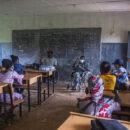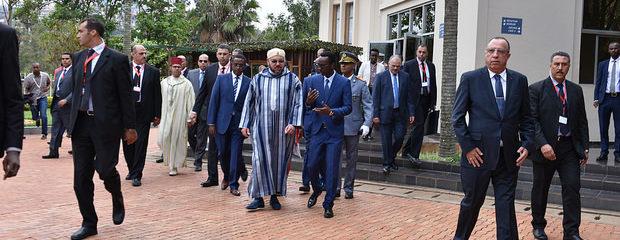UNAMID and the Security Council: Evidence for Policy
When the Joint Special Representative of the UN and AU for Darfur, Rodolphe Adada, presented his report to the UN Security Council on Monday, he felt confident enough to make public the findings of UNAMID’s monitoring of the situation in Darfur.
The language Amb. Adada used and evidence he presented came as a surprise to some Security Council members. The phrase “˜low intensity conflict’ was criticized by at least one ambassador. She did not question his numbers (presumably because the statistics are validated by her own country’s reporting), but disputed whether the numbers alone should be the basis for defining whether Darfur was “˜low intensity.’ (The Uppsala Conflict Data Program definition of a “˜minor’ conflict is less than 1,000 battle-related deaths per year, the U.S. definition of “˜low-intensity conflict’ has no numerical threshold.) The phrase “˜a war of all against all’ was also highlighted by the UN media reporting.
Neither of these phrases are surprising to those who have been in the field in Darfur and listened to the descriptions and analyses of military observers. The UNAMID Force Commander, Gen. Martin Agwai, uses the phrase “˜war of all against all’. The incident reporting system from which Agwai and Adada drew their conclusions is supervised by a French military officer. Military attachés in Khartoum use these descriptions routinely. The estimates for overall numbers of fatalities have also been common knowledge in Sudan.
Amb. Adada made some important caveats. He is after all a professor of mathematics and at home with numbers, and he stressed that the number cannot be considered 100% precise. The 2,000 deaths are, he emphasized, too many. He described how some incidents had been prevented from escalating and resulting in more fatalities. (UNAMID is becoming an interesting and important case study in how the ‘responsibility to protect’ can actually be realized.) He said that tens of thousands of civilians had been killed in earlier phases of the war. And a low-intensity conflict is still a conflict, with major risks of deterioration.
The key purpose of Adada’s presentation, as I understand it, was to bring the best analysis from the field in Darfur to the Security Council, and “˜speak with authority on the situation on the ground.’ His intention was to anchor international policy in evidence for the current situation on the ground. The Security Council needed to hear this. Monday’s session was a dose of reality and helps clarify possible ways ahead.






The disputable presentations of the numbers language regarding the situation in Darfur reflect the capitalization of the conflict there for the interest of the different parties involved. The improvement of the situation in Darfur has become an undeniable ground fact that no one can dispute about it. For thoes who want to keep the conflict ablaze and benefiting from it , higher deaths statistics is the best option. The conflict in Darfur has become a fertile field of politics manipulation and the western raised stick against the goverment of the Sudan. The confession by Senator John Kerry in his article to the Boston Herald on April 27,2009 that ” the violence of 2003 and 2004 has declined substantially, but the consequences of the genocide remain unresolved” leaves no room for manipulating the current statistics of the conflict.
The question is that why is it so upsetting for the US and its allies if the situation in Darfur improves? surely if they had Darfurs best interest at heart they would have welcomed this news.It just goes to show how darfur is more a political conflict then it is an armed one.
However am sure Eric reeves and fellow advocates will be more then happy to reassure the US Government and public that they need not worry the horrors of Darfur still continue and adada the head of the unamid mission in darfur who has roughly 15000 neutral eyes and ears on the ground will have his report burried under a mountain of news reports covering mia farrows latest publicity stunt and articles by eric reeves explaining how he thinks the government might secretly try to change the gene pool of Darfur or some other ludicrouse publication were most of the research has been carried out in his imagination.
Abdel Wahid has said that he will stop cooperation with UNAMID until Adada withdraws his figures. But over all these years the SLA has never produced a figure of its own but just parrotted what Save Darfur has to say. Omer Ismail of the Enough campaign has attacked Adada and said that because UNAMID is only operating at one third capacity that is an admission that it doesn’t know what is going on. Omer has recently been resorting to more and more convoluted arguments to support his position. This is one of the silliest. The “ongoing genocide” claim has been based on what is happening in the IDP camps, which are all patrolled by UNAMID on a regular basis.
This week the census results were announced and it turns out that there are 7.5 million Darfurians. That’s 1 million more than in 2003. If what Abdel Wahid and Omer Ismail are saying is true they should be denouncing the census numbers instead of staying strangely quiet now.